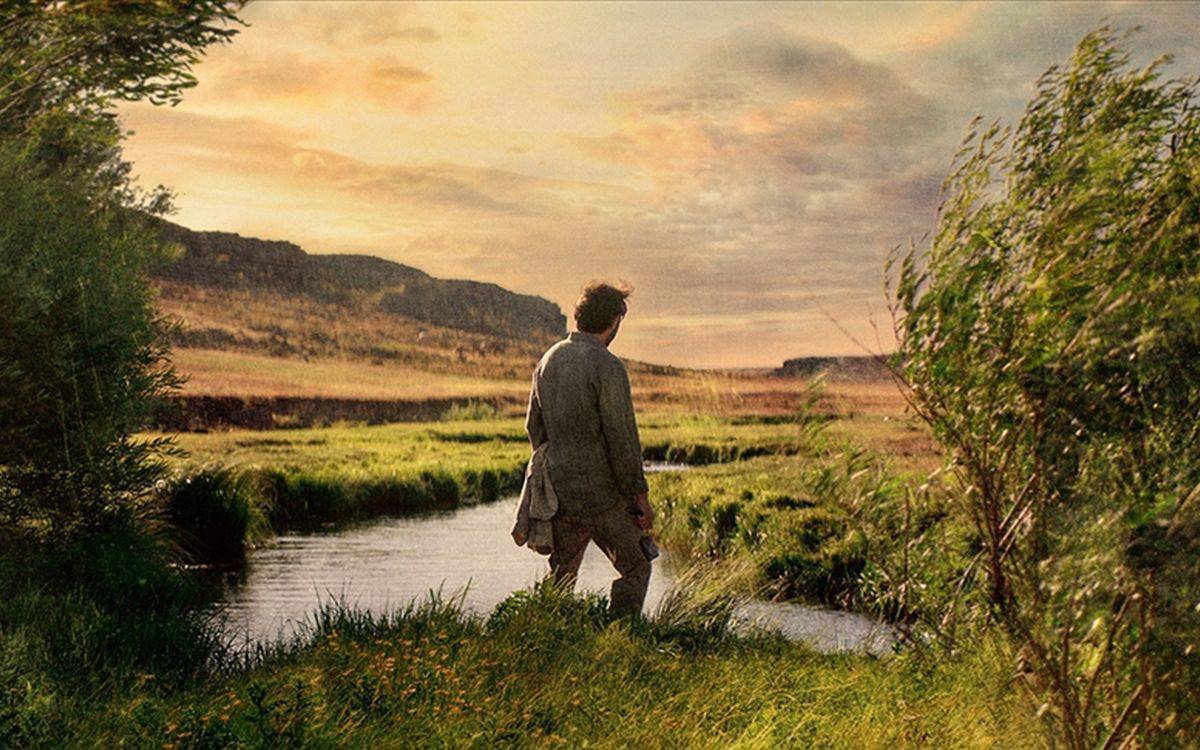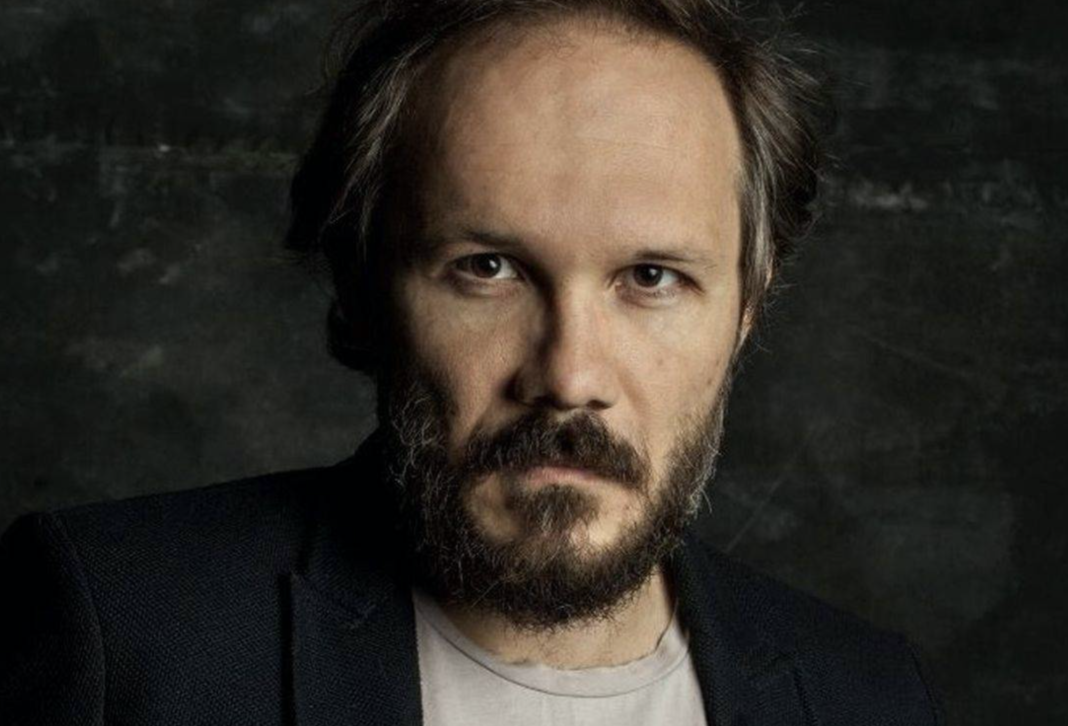Deniz Celiloğlu, the actor behind Samet, the main character, delved into his preparation for the film, the steps he took to comprehend the character, and his insights into working with with Ceylan.
November 20, 2023, Bianet English.
Nuri Bilge Ceylan’s latest film, « About Dry Grasses, » which brought Merve Dizdar the Best Actress award at the Cannes Film Festival and had its Turkish premiere at the Golden Boll, takes us once again to the hinterlands with Samet, a teacher performing mandatory service in a village in Erzurum in the country’s east.
We had the chance to talk to Deniz Celiloğlu, who portrays Samet, about how he prepared for the role, what he did to understand « Samet, » and his insights into working with Nuri Bilge Ceylan.
A highly talked-about and award-winning Turkish film is in theaters – Nuri Bilge Ceylan’s « About Dry Grasses. » It’s a film loved by some and not liked at all by others. What were your thoughts when you first read the script?
Nuri Bilge Ceylan has a very distinct and dedicated fan base, like concentric circles. The innermost circle is very loyal, surrounded by those who follow the film’s production and read comments, and those who discover the director for the first time with this film. Merve’s award, especially, had a significant impact on this. « About Dry Grasses » seems to be Ceylan’s most-watched film in his filmography.
Personally, when I first received the script, I felt a few different emotions. But one of the most prominent ones was thinking, « I’m glad he crossed my path, and this is possibly be the film to save my life. » The film “Son Çıkış” [The Last Exit] was my last film, and, for a long time, I hadn’t come across a role that intrigued me and resonated with me so deeply. When I got the script, I thought about how layered the story was and how deep the character Samet was.
Every actor wants to be in a Nuri Bilge Ceylan film, but I don’t know if everyone has a bond like mine. Because where Nuri Bilge sees people is where I see people too. Our perception of humanity and the window through which we look at people are very similar.

So you you were familiar with the director’s other films?
Yes, personally, where I see people is exactly where he sees them. His cinematic language is very close to me.
What kind of preparation process did you go through?
Actually I went through a very long preparation process. I received the script seven months ago. This is a very good process for an actor, especially for a profound and lengthy script. Considering Nuri Bilge Ceylan’s cinematic universe as a whole structure, there is a culture within it about how a filmmaker sees the world and being human. I told myself I needed to find a method to understand this.
So, what did you do to understand Samet?
How do you prepare for a subject? For example, to work on Goethe, you need to know German history. I tried to understand NBC’s language and rhythm. I read all his interviews and watched what I could find to understand his world. I tried to adapt to his cinematography and the unique language he created. Because, as I said, he has a rhythm, and he has a unique world. When I figured that out, the role came naturally.
Is Samet urban or rural?
Actually, he’s rural but not eastern. It was even in one of the scenes that were cut out, which the audience doesn’t know. It was in Veterinarian Vahit’s scene. Vahit says to him, « You’re from Ionia, you know. » Samet comes from Manisa, around the Aegean. So, we can say he’s from a small town, not from a big city like İzmir. Therefore, we can say he is from countryside, but his mindset is Western, he is a person who has adopted Western individualism.
But regardless of whether Nuri Bilge’s characters are rural or urban, they all resemble each other in their lies, hypocrisy, and darkness. They all share the same common traits.
Is this film more political than the others in your opinion?
Contrary to the general opinion, I understand being political differently. I think NBC is a fairly political director. I would like to elaborate on this. I don’t have deep literature knowledge on political cinema, so maybe we can call his films pre-political. Because human relationships are already political, and as a result of the relationships these people establish, politics emerges. It first points to the country, then spreads to the world. That’s why I think Ceylan’s cinema is quite political.
At this point, I would like to quote from Ingeborg Bachmann’s book « Malina. » She says, « Fascism begins not with thrown bombs but between two people. » In other words, since what we call political starts between two people, I find it shallow for people to understand political only in terms of politics. In fact, I get a little annoyed about this. (Laughs.)
Did you have a scene that was particularly challenging?
Physiologically, no, but I struggled a lot to balance the relationship I had to establish with Sevim. The relationship between them and what was happening in the story was never clear to me, and the script didn’t provide any certainty either. Maybe I had some observations during the process, but still, I tried to convey the script to the audience as it is, without leaning towards an obvious direction since it’s a sensitive issue.
The director didn’t make significant interventions either. So, I spent a lot of energy trying to keep this relationship in balance.
If I ask you, what kind of person is Samet…
For some, Samet is a very malicious, dark, and selfish character, and for others, he is someone trying to save himself from what happened to him, a character not perceived as narcissistic. In other words, some didn’t like him at all, while others empathized with Samet. I tried to play them all, and the point we reached about the character was actually the final form given by the director with all the materials gathered.
Did you have an alternative ending to the script?
I honestly tried not to intervene at all. Because if I tried to go beyond what was written and adapt the character to my own vision, I could have had a significant conflict with the role. So, I left it as it is.
So, what kind of director is Nuri Bilge Ceylan?
He certainly has an original design in his mind. But he opens up a lot of space for the actor and is happy with as much diversification as the actor can bring. I have only noticed this about myself during the process: I am more open to guiding than being directed. It has started to feel difficult to perform mere craftsmanship without conviction.
Wasn’t this script that came when you said you wanted to direct a film? Did you want to experience the master-apprentice relationship once again as an actor before shooting your original work?
That’s a very nice question. Of course, it may be a desire for observation. But I would be lying if I said I didn’t feel the desire direct rather than being directed. I wasn’t involved in the scriptwriting and editing process, for example, but a feeling as if I was there in the whole process settled in me over time. I tried to fill the gaps in my mind by reading the script a lot and still thinking about it. This made me feel more familiar with the whole process.
Who are your favorite directors?
Looking at it from the perspective of my personal relationship with Turkish cinema, I can count Nuri Bilge Ceylan as the only director. Yes, the film is over, but I have watched it five times, and to tell the truth, I still read all his writings and study it like a school to understand the director.
I have always followed most of the films of other directors and really like Ömer Kavur. But still, Nuri Bilge Ceylan is unique for me. Among foreign directors, the first one that comes to mind is Haneke.
Was shooting the film in Erzurum inspiring?
Of course! When you are on set somewhere else, you can’t go home, so we literally lived in that atmosphere. It was a place I hadn’t been to before the shooting, and it was a fascinating experience for me. I was only thinking about the character at home, and when I went there, I understood the story better.
How did you get feedback from the audience? Any unforgettable lines…
I can say this with ease: the film has shaken everyone. It has affected both those who liked it and those who didn’t. We received feedback from many people. They were all different comments, but I can say this. The film has profoundly influenced and shaken everyone, both in terms of liking and disliking. The unforgettable line is, « Take out what Samet did, it’s the same as me. »
Finally, does winning an award for a film add momentum to Turkish cinema, creating a transformation in the audience?
I entered such a big festival and the world of awards as an observer for the first time. For example, I intentionally watched many films in Cannes, made my lists, and in the end, none of my analyses held true. Therefore, what I saw was actually that it ended with the decisions of only 9-10 people, and things progressed very subjectively. So, I think awards are a form of relationship established in the short term. That’s why I find the relationship a film establishes with the audience in the long run more sincere than the awards.
In short, I think awards, although they create a perception in the short term, are more for adding collective excitement. I think the emotion conveyed by the audience is more real, and we can follow it through social media these days.
Is Nuri Bilge Ceylan’s world, and even this region, understood abroad?
Yes, yes, I think his films are as universal as they are part of the region. That’s why I saw that they are understood personally. I’m not in a position to analyze how it looks socially, but I witnessed that the film attracted a lot of attention at festivals abroad. (GÖ/AS/VK)

